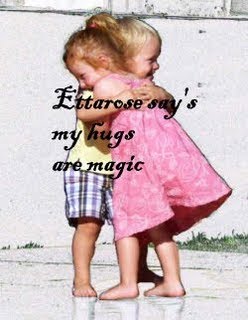 Normally I will leave the book reviews to people who know about such things. To me that means Catherine and Ken. But just yesterday, in my travels, I was introduced to a new British author that I am in the process of exploring, and I wanted to share the discovery with you. Mostly this is for Americans because the British and Irish already know about him.
Normally I will leave the book reviews to people who know about such things. To me that means Catherine and Ken. But just yesterday, in my travels, I was introduced to a new British author that I am in the process of exploring, and I wanted to share the discovery with you. Mostly this is for Americans because the British and Irish already know about him.Let me back up a bit for my new readers who have only followed me on this blog (I have other blogs which are currently in suspension that I will later return to.) One of my other blogs is called "BritishSpeak: One American's Quest To Understand British English." (If you were puzzled why there are so many British and SAfrican followers to this current blog, now you know why.) I used it to gather information about how UK culture differs from U.S. culture. One of the things I learned about was that the UK has a few good authors. Heh. Some so popular I was ashamed I had never heard of them. Like Enid Blighton, for example. Today, I want to add Laurie Lee to that list of authors I want to pursue.
It was my friend Soubriquet, as is often the case, who turned me on to Mr. Lee, and, in particular, his book "Cider With Rosie." The "gear-gritter/spoke-poker" had a mention and quote on his blog yesterday when I was surfing. I am about to steal the quote he posted from the book. See if you are as captivated by Lee's powers of description as I was:
" 'It's cider,' she said. 'You ain't to drink it though. Not much of it, any rate.' Huge and squat, the jar lay on the grass like an unexploded bomb. We lifted it up, unscrewed the stopper, and smelt the whiff of fermented apples. I held the jar to my mouth and rolled my eyes sideways, like a beast at a water-hole. 'Go on,' said Rosie. I took a deep breath ...
"Never to be forgotten, that first long secret drink of golden fire, juice of those valleys and of that time, wine of wild orchards, of russet summer, of plump red apples, and Rosie's burning cheeks. Never to be forgotten, or ever tasted again ..."
Cider with Rosie, 1959 )
I am simply cativated by how Lee sucks you right into the story, how he turns you into a witness to events rather than simply a reader. Listen to a couple of his character descriptions:
"We call out a greeting to Granny Trill in her tiny cottage filled with the smells of dry linen, tea caddies and the sweeter tang of old flesh, who always seemed to be chewing, sliding her folded gums together in a daylong ruminative cud. I took this to be a trick of age, a kind of slowed-up but protracted feasting."
And how suddenly Lee can make the tears well up inside you, even if you have just been laughing:
"... the death of Hannah and Joseph Brown, grown feeble and infirm, separated by well-meaning authorities in the Workhouse because they can no longer take care of themselves, and who quickly die of old age and fright, because they have never been apart before."
"... the death of Hannah and Joseph Brown, grown feeble and infirm, separated by well-meaning authorities in the Workhouse because they can no longer take care of themselves, and who quickly die of old age and fright, because they have never been apart before."
It never fails: just when I start to think I am learning how to write, I come across someone like Laurie Lee and I fall into utter despair again. Despair because I know I can never, no matter how hard I try or how enthusiastic I am about my subject, come close to people like Laurie Lee, the poet who tried his hand at prose in "Cider With Rosie."
Gustave Flaubert, in his "Madam Bovery" described perfectly how frustrated I feel right now:
"Human speech is like a cracked pot on which we beat out rhythms for bears to dance to when we are striving to make music that will wring tears from stars."
And by the way, if you haven't read Madam Bovery since you were young, you really need to read it again when you are older. Trust me.


